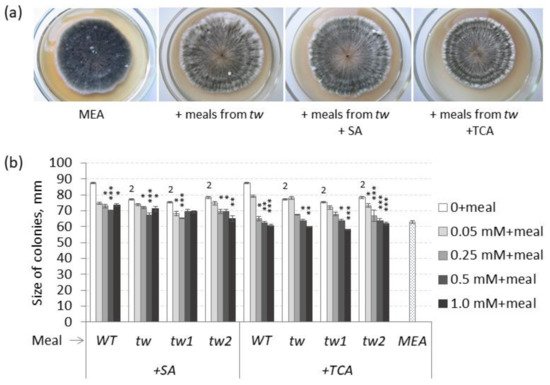Barley developmental mutants tweaky spike (tw) with disturbed auxin pathways possess a unique feature of an increased level of mouldy germinating grains (MGG), which serves as a convenient model to investigate the effects of plant immunity-related substances. The effects of the auxin 2,4-dichlorophenoxyacetic acid (2,4-D), auxin inhibitors, salicylic acid (SA), and trans-cinnamic acid (TCA) were studied using the tw-WT system in surface-sterilized and unsterilized germinating grains under high rates of natural infection. Significant differences among the allelic tw mutants were revealed at the natural MGG level and in response to 2,4-D, SA, and TCA. The most effective means against MGG were sterilization and TCA. 2,4-D inhibited root growth in tw and tw2 mutants, occurring only in unsterilized and not sterilized germinating grains, while the opposite was observed for TCA and SA. The tw mutations influenced variations in the seed-borne fungal spectra, decreasing the frequency of Bipolaris sorokiniana and increasing Fusarium spp. Hypochlorite-based surface sterilization methods should be used with caution in studies where the action of exogenous 2,4-D will be analysed in germinating grains. Auxin pathway disturbances specific for pleiotropic tw mutants are generally restricted to organogenesis but not to germination events.
- barley
- MGG assay
- salicylic acid
- trans-cinnamic acid
- tweaky mutants
- 2
- 4-D
1. Introduction
2. Analysis on Results
2.1. The Action of 2,4-D, SA and TCA on MGG and Root Growth of Allelic Tweaky Spike Mutants
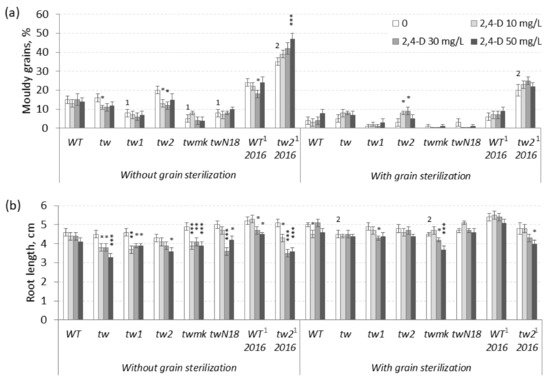
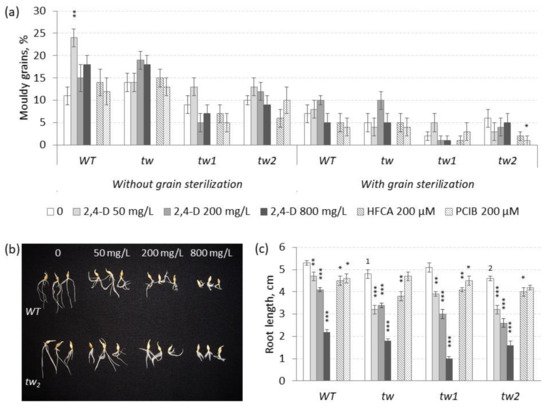
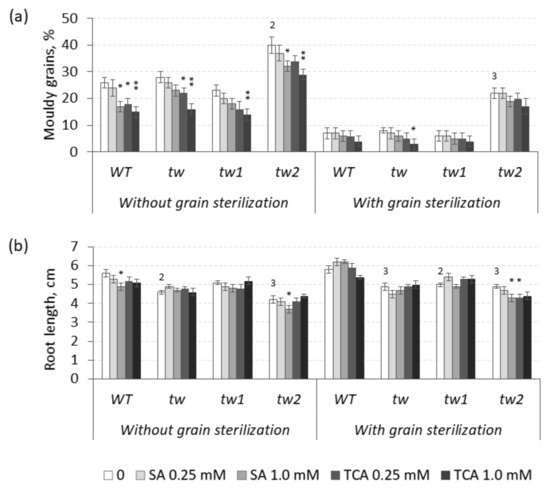
2.2. Fungi Spectrum in the Internal Grain Tissues of Barley tw-Type Mutants and Revertants
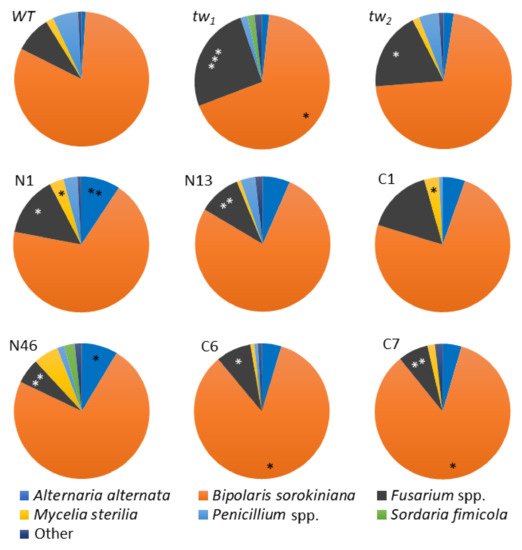
2.3. The Impact of Meals from Grains of tw-Type Mutants on the Colony Growth of Bipolaris sorokiniana
